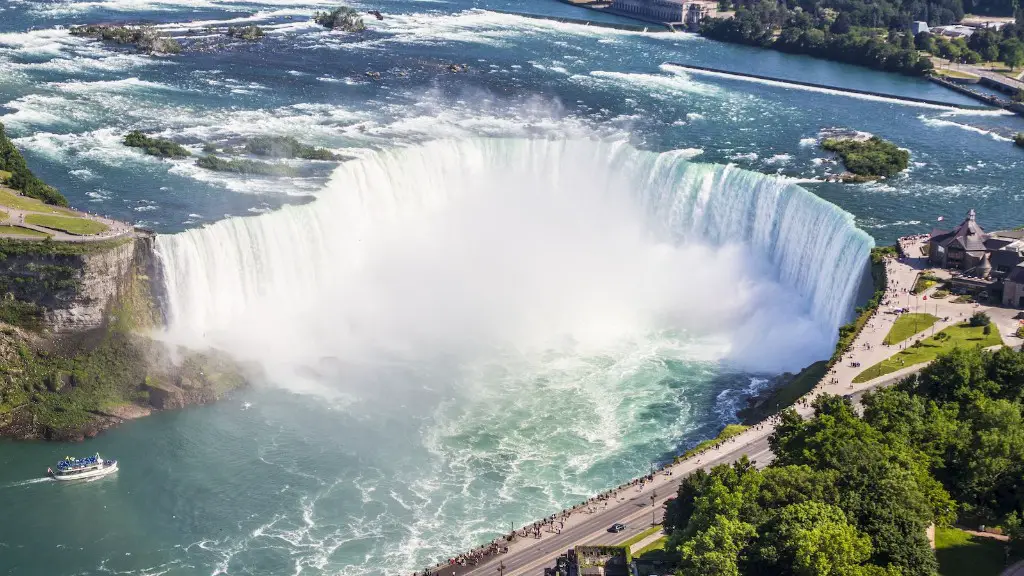Nickname: The Big Muddy
The Mississippi River was so important to early European settlers that it has earned many nicknames over the years. The most famous of these is ‘The Big Muddy’, which was coined by the Native Americans who lived in the area and was later adopted by settlers. The nickname refers to the turbidity of the river, which can become so thick with sediment and debris that the murky water can be difficult to distinguish from the mud.
The muddy nature of the Mississippi is due to its long course. The river flows from Minnesota in the north, crosses ten states, and ultimately empties into the Gulf of Mexico. Along its route, the river collects sediment from rain, snowmelt, and agricultural runoff, which cause the water to become murky. As the muddy water moves downstream, the turbulence of the river aids in the sediment getting churned up, leading to the river earning its nickname.
The mud of the Mississippi affects the quality of the water and life in the river. The sediment can smother aquatic plants, and the resulting muddiness reduces the clarity of the water and cuts off the amount of light that reaches the bottom. This altered environment leads to a decrease in aquatic biodiversity and productivity of the river. As a result, fisheries and other economic activities that rely on the life of the river may suffer.
The turbidity of the Mississippi is seen as a nuisance by many, but it is also seen as having some advantages. The sediment helps to create fertile soil for agriculture on the banks of the river, and protecting wetlands aid in the removal of pollutants that enter the river. Plus, the turbidity of the river is greatly reduced during the summer months, when the stream flow winds down, resulting in a clearer river that provides a hospitable environment for fish and other aquatic life.
Nickname: The Father of Waters
The Mississippi River holds an important place in the history of the United States. It has been called ‘the father of waters’, a nickname referring to its immense size and immense importance. The river is the fourth-longest in the world and is responsible for connecting the heartland of the United States to the Gulf of Mexico, providing transportation for goods and settlers.
The river’s historical importance can be seen in its many forts, settlements, and battlefields that are scattered along its banks. The river has also shaped politics, as states have sought to take advantage of its trade potential. Additionally, the Mississippi has been an important area for many Native American cultures, whose lifeblood depended on the river’s bounty.
The river has a lasting impact on the economy of the United States, where it has traditionally been used to transport resources and goods across the nation. But it has increasingly been used for recreational activities like fishing, boating, and swimming, generating important tourism revenues for the states along its banks.
The Mississippi River also plays an important role in the environment. It provides water to millions of people, and its wetlands are important in aiding in the care and protection of local wildlife. The river also helps to regulate climate, as its cooler waters help cool the air above it during hot summer days.
Nickname: The Mighty Mississippi
The enormity of the Mississippi River is captured in the nickname ‘The Mighty Mississippi’. It is one of the longest rivers in the world, spanning over 2,900 miles from its source to its mouth, and is the ninth longest river in the world. Its immense size and power is a testament to the awe-inspiring beauty of nature.
The river’s power is also seen in its ability to generate electricity. Along its course, the Mississippi develops significant hydroelectric power, with its dams providing electricity to many downstream communities. The river also supports thousands of species of plants and animals that make their home in the warm, nutrient-rich waters.
The Mighty Mississippi has also been an important area of exploration and discovery. It was on its banks that 18th-century explorers and pioneers set out to discover the great unknown, and it was its currents that shaped the growth of America’s great cities. It is a place of beauty and timelessness, a place of life and death, a place where the cares of the world can slip away in its ceaseless flow.
Nickname: Old Man River
The Mississippi River has been referred to as ‘Old Man River’ in popular culture. This nickname captures the timeless nature of the river, and its ability to overcome great hardships that have been placed in its path. The river has the ability to erode its banks, to cleanse itself in perilous floods, and remain a source of life and a place of refuge.
It is this ability to endure and persevere that has earned the Mississippi its nickname. The river has served as a witness to many of the trials and tribulations of American history, from slavery to civil war, from displacement to displacement. The river has seen civilizations come and go, nations rise and fall, but it still stands strong.
The old man river continues to provide vital resources to the people who live along its banks. Its wetlands provide protection from flooding, its wetlands provide habitat for endangered species, and its waters provide sustenance for hundreds of species of fish and aquatic creatures. It is this timelessness and resilience that have earned it its nickname.
Nickname: The Gateway to the West
The Mississippi River has been referred to as ‘the gateway to the West’. It played a vital role in facilitating the expansion of the United States into the western frontier. When the settlers began to move westward, the river served as their primary source of transportation, providing a gateway to new lands and new opportunities.
As the settlers continued to move westward, the towns along the Mississippi flourished, providing a gateway to western trade. The river served as a link between the core of the country and its far-reaching frontiers. It was and still is an important area of commerce and transportation.
Today, the Mississippi River serves as a reminder of the importance of the river in the history of America, and a reminder of the impact of humans on the environment. The river is a living, breathing testament to the power of human ingenuity and the capacity for change.
Nickname: The Mighty Mo
‘The Mighty Mo’ is a recent nickname to emerge for the Mississippi River, inspired by its turbulent rapids, turbulent current, and turbulent history. The Mighty Mo is a nod to the raw beauty and power of the river, and its ability to survive despite its violent environment.
The Mighty Mo is a reference to the evolution of the Mississippi River, from its early days of exploration to its current status as one of the longest and most powerful rivers in the world. The Mighty Mo signals the possibilities that still lie within the river, where its strong yet gentle waters hold the potential to open up new doors, to create new pathways, and to provide hope and shelter to those who find refuge in its waters.
The Mighty Mo symbolizes the ever-changing and resilient nature of the Mississippi River. It is a reminder of the interconnectedness of our past, present, and future, and how the mighty power and beauty of the Mississippi can continue to shape and define our nation for generations to come.
Nickname: The Old Man
The Old Man is another nickname for the Mississippi River, and is generally used as a term of endearment that acknowledges its long history and importance in the United States. The nickname is a reminder of the timelessness of the river, and its continuing importance to the people and places, like the ports and cities, that it touches along its course.
The Old Man is also a tribute to the power of the river, and its ability to overcome adversity. The Mississippi has weathered the test of time, and has continued to be a source of strength and sustenance to many in different parts of the country. It is the bedrock of the American spirit, a reminder that we can overcome anything in our paths.
Lastly, the nickname pays homage to the important role of the Mississippi River in American history. Settlers made their homes on its banks and sought out its bounty for sustenance. The river played an important part in wars and transporting resources. Its history is a testament to its strength and permanence, and ‘The Old Man’ is a tribute to the Mississippi’s long legacy of providing life and prosperity to those who inhabit its banks.





